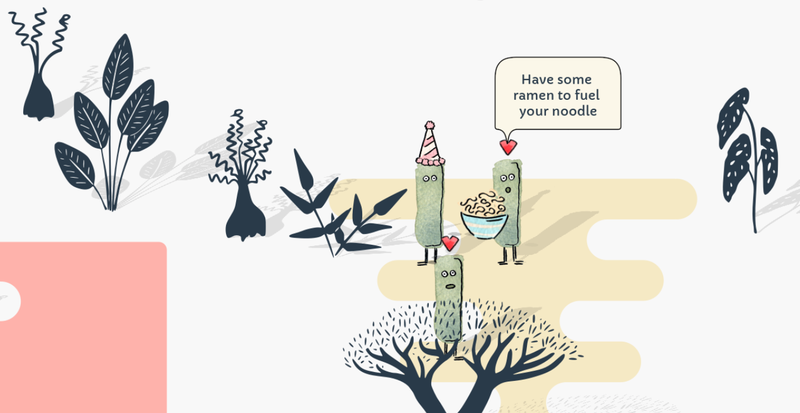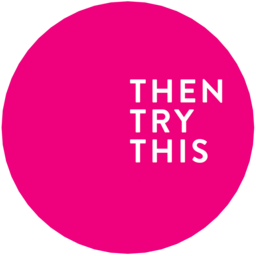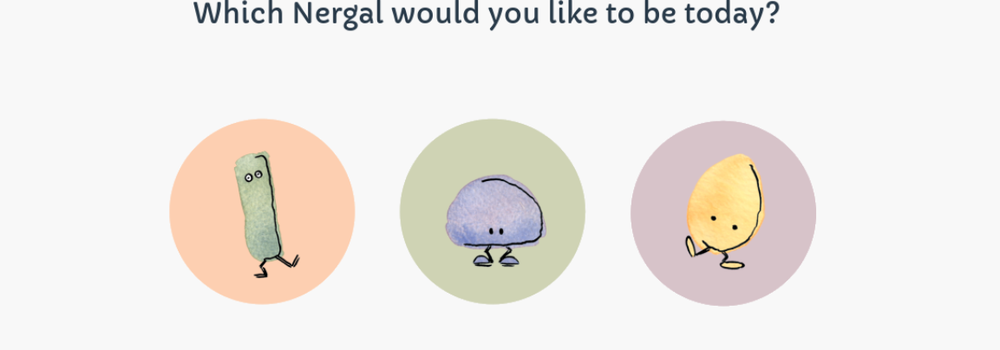We've released Nergal, our new citizen science game for understanding how people's social networks and decision making change how diseases spread through communities. You play as a cute Nergal in your choice of fancy hat. You can potter around a strange world, there's no right or wrong, you can do whatever you like - chat with other Nergals (maybe get a snack from them), make and break friendships, talk to the plants, clouds, even the moon if you like, and play tunes by walking around. There is an ominous disease though...
While it might not seem like you're doing anything serious, just by playing you're generating important data for disease research, that could lead to important public health benefits in future. So, please share far and wide, as that way the dataset gets bigger, and the research becomes better.
We've also built a Night Mode designed to be played only through sound if you have little or no sight. Hooray for better accessibility for online games!
Nergal has been built by Then Try This, with epidemiology researchers Dr. Matthew Silk and Nitara Wijayatilake at the University of Edinburgh, and with accessibility advice from sight loss charity iSightCornwall and their clients. The code is open source as always.

Funding and ethics
The project is funded by the Royal Society, through Matt's University Research Fellowship (grant number URF\R1\221800), and runs from 2023-2028.
We also joined the Impetus scheme which provided some additional funding to make a version of the game that works through sound, so that people with visual impairments can play, this part of the project runs June 2024 - Jan 2025.
IMPETUS is supporting our project. IMPETUS is funded by the European Union’s Horizon Europe research and innovation programme under grant agreement number 101058677. Views and opinions expressed are, however, those of the author(s) only and do not necessarily reflect those of the European Union or the European Research Executive Agency (REA). Neither the European Union nor the granting authority can be held responsible for them.

This project has ethics approval from the University of Edinburgh under the title 'Nergal - a citizen science research and public engagement tool in behavioural epidemiology' - Ethics Assessment Reference: msilk-0004. Consent for workshop participation and crediting was gathered verbally and confirmed by iSightCornwall staff, as were the feedback quotes.

